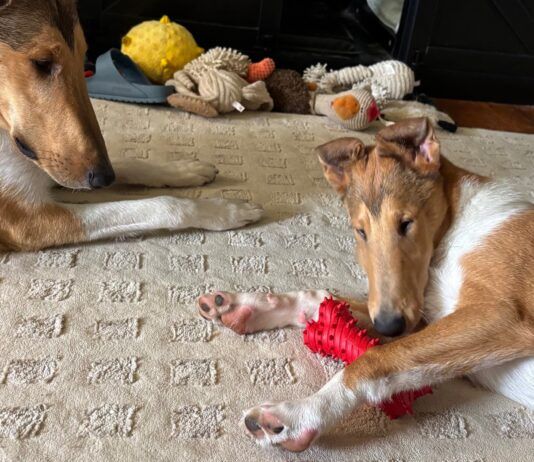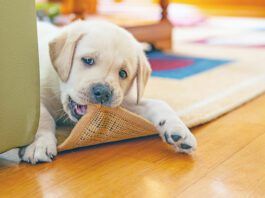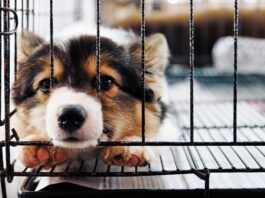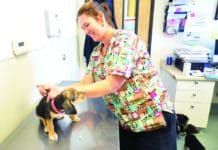Take Control of Puppy Chewing
Why do puppies chew? They chew to explore the world, and to relieve the pain and irritation of teething. But they also chew because it's a natural, normal activity for all canines, young and old. While puppies do eventually grow up and get past the stage where they feel compelled to put their teeth on everything they see, mature dogs also need to chew to exercise their jaws, massage their gums, clean their teeth, and to relieve stress and boredom.
Puppies in Public: Risk Factors
As the proud owner of a new puppy, you are faced with some big decisions in the first few months. Are ALL of those vaccinations necessary? Can my puppy start socializing by mingling at the dog park or on the street? When should I begin training, or hire a dog trainer? What may seem like obvious answers are actually quite complicated and critically important to your puppy's well being.
The Deal with Puppy Shots
You might be surprised to know that dogs don't actually need a series" of shots in order to be immunized against canine diseases. That said
Best Puppy Collars & Harnesses
Does this collar make me look fat?" This is not a question your dog is likely to ever ask
7 Steps to Leash-Train Your Puppy
Did you know that the best way to teach a puppy to walk politely on a leash is to not use a leash? If you think that sounds like an inscrutable Buddhist koan, fear not - you are not alone. It's far more common to see people either dragging their puppies around, or being dragged around by their puppies, than it is to see a calm, happy puppy trotting along by her owner's side.
What is Proper Socialization and How Do You Make Sure Your Puppy Gets It?
In 2008, the American Veterinary Society for Animal Behavior (AVSAB) released a statement affirming that puppy socialization is a critically important tool in the development of a behaviorally normal dog. The organization also confirmed that the risk of a puppy contracting a serious or fatal disease during proper socialization efforts is far less than the risk of a dog later being given up or euthanized due to behavior problems that developed as a result of a lack of socialization. This is an absolutely critical accomplishment for your dog.
Ways to Manage an Adolescent Dog
Is your once cute, cuddly, and well-behaved pup suddenly acting out? Is your dog ignoring you, taking off if he sees something interesting, and chewing on everything in sight? Did his once perfect sit
5 Things To Do When Your Puppy Acts Out
You thought you were doing a good thing for your mature dog when you adopted a new puppy. She'll love him!" you assured yourself. "It will keep her young and active." Rather than loving him
The Effects of Male Womb-Mates
If a mother dog's hormones can affect her fetuses in utero, what about the hormones of their siblings? The effects of in-utero testosterone on females with all male siblings are well documented in rodents and cattle, and debatably exist in humans. These females undergo physical and behavioral masculinizing effects.
The First Week with a New Puppy
It's one of the best feelings in the whole world -- those first few hours with your new puppy when everything is perfect and anything is possible. It doesn't take long, however, for that bubble to burst. It could be the very first day, when you step in that pile of puppy poo on your Persian carpet, or find deep puppy tooth gouges in your treasured pair of Jimmy Choo shoes.
How a Mother’s Stress Can Influence Unborn Puppies
Can a highly stressful environment during pregnancy affect how puppies turn out? Imagine this: A young dog goes stray and lives on urban streets for two months, in almost constant fear. Kids chase her down a street, throwing rocks at her; she is attacked by another dog; and she struggles every day to scavenge enough to eat. At last she is apprehended by an animal control officer and brought to a shelter. Here she finally gets enough to eat, but she's still not able to relax; the shelter is full of strange smells and loud noises, her run is small, and the floor is hard. After she's been at the shelter for a few weeks, a shelter staff member realizes that she is pregnant and due very soon. The shelter puts her on the waiting list for a foster home, knowing that puppies don't do well when they grow up in shelters.
How To Crate-Train Your Puppy
Most puppies are crate-trained with relative ease. Remember that the crate should be just large enough for your pup to stand up, turn around,...

















